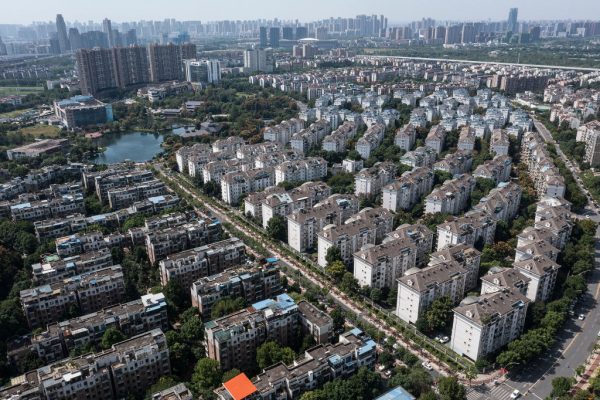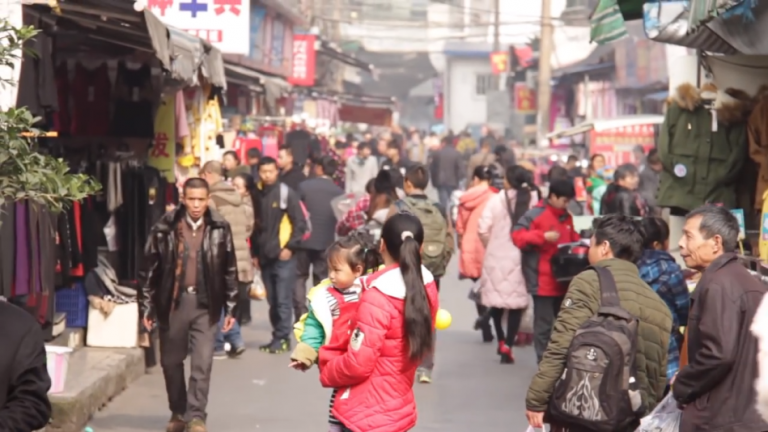News analysis
On Dec. 8 through Dec. 10, China held its annual Central Conference on the Economy in Beijing. The meeting is the highest level of economic analysis and decision-making of the Chinese Communist Party (CCP). The three-day closed-door conference sent a strong message of “stabilizing the economy.” In a lengthy press release penned by state media Xinhua, the word “stability” was repeated 25 times.
At the conference, Chinese leader Xi Jinping repeated the “Six Stabilities” and “Six Guarantees” many times. The Six Stabilities refer to stabilizing employment, finance, foreign trade, global capital, local investments and expectations.
The Six Guarantees refer to employment, basic livelihood, the market body, food and energy security, stability of the supply chain and ensuring the smooth operation of grassroots governmental units.
Only a few months ago, the CCP’s economic goal was to control inflation and not flood the market by printing new money. However, before the conference, China’s central bank announced the lowering of interest rates and released 1.2 trillion yuan into the economy. This shows that the country’s economy has undergone vital changes in the past two or three months, shifting the priority of the CCP’s top echelon.
Analyzing the ‘Six Guarantees’ as proposed by Xi
Success
You are now signed up for our newsletter
Success
Check your email to complete sign up
Different groups will have different priorities, however average people would consider employment and basic livelihood as crucial. For enterprises, priorities may shift to the stability of market and industrial chains, while for the government, food and energy security are main concerns.
But for Beijing and the communist regime, the top priority is to protect the operation of grassroots governmental units.
If grassroots units stop operating, the local regime will fail, meaning it would become impossible to implement measures and policies from the central government. The CCP regime would then face difficulty sustaining itself.
When Beijing raised concerns about grassroots operations, it implied that the lowest level of the regime is currently facing difficulties and the issues are serious enough that the regime’s top sectors have to intervene.
Civil servants’ salaries cut by more than half
In recent days, news from social media in China indicates that civil servants in many jurisdictions have been notified of pay cuts ranging from 20 to 30 percent. For example, the annual salary of a police chief in Shanghai has been reduced from 350,000 yuan to less than 200,000 yuan, while the annual salary of a branch-level civil servant has gone from 240,000 yuan to 150,000 yuan.
Civil service salaries in China are made up of several components: basic salary, performance bonuses and various allowances. The monthly salary of a grassroots-level civil servant ranges from about 2,000 to 4,000 yuan, or roughly US$300-$600.
Performance bonuses and allowances account for more than 60 percent of wage income. If these are cut, it would equal to the elimination of half a paycheck. With the sudden loss of this income, many people would immediately face financial difficulty.
A drastic pay cut for grassroots servants is risky for any administration. When employees are not happy in their jobs, they will not perform to the best of their ability and the efficiency of the entire establishment could be greatly diminished. Many of Beijing’s policies would thereby become difficult to implement.
How many Chinese civil servants are currently supported by taxpayer money? In addition to governmental roles at various levels, there are also party systems, Communist Youth League systems, labor unions and women’s federations, “democratic” parties, schools, and research institutions. About six years ago, CCP officials disclosed a figure of about 64 million people on government payroll.
Under normal circumstances, CCP authorities wouldn’t target its own civil servants as they are crucial to upholding the safety and security of the entire communist regime. According to the Marxist ideology of the CCP, the economic base determines the superstructure and any economic problems could undermine the entire structure of social control.
Despite the CCP experiencing monetary problems, it still has to pay for expensive stabilization agencies at all levels.
The current list of civil pay-cuts involves the richest regions in mainland China, such as Shanghai, Zhejiang, Jiangsu, Guangdong, and Fujian. Three years ago, only 6 to 7 of China’s 31 provinces and autonomous regions had a fiscal surplus, the rest were in deficit.
However in 2021, only one jurisdiction in China with a fiscal surplus remains: Shanghai. All other offices are now in deficit. This explains why local debt has risen dramatically as each jurisdiction needs to issue bonds to maintain local finance. But bonds can’t be increased endlessly without a limit.
CCP forced to downsize
The civil service pay cut, in essence, is the beginning of the CCP’s attempt at cutting costs.
During the financial crisis in 2008, China faced a roadblock in its development. Through massive stimulus, China launched a 4 trillion yuan “infrastructure project” in 2009, which resulted in a rush increase of loans and local bonds. This resulted in China’s property prices skyrocketing and driving inflation rates through the roof.
At present however, the Chinese economy is experiencing many problems. The local economy is failing, enterprises are struggling, unemployment is on the rise, and COVID-19 is still affecting people’s daily lives. This has been amplified as foreign companies have pulled out of China, removing millions of dollars from an already struggling economy. Now, China’s overall economic situation can no longer be solved by resorting to new cash influx.

Real estate collapsing, unemployment on the rise
The real estate industry in China is also in trouble and accounts for roughly 30 percent of China’s GDP. According to a report released on Dec. 6 by Shanghai E-House Real Estate Research Institute, the number of transactions in mainland China hit a 10-year low in November, down 4.3 percent from the previous month and plunging 39.4 percent from the same month last year.
From January to November, the cumulative number of new home transactions in China’s largest cities increased by 2.6 percent annually, a 5.3 percentage drop from the previous month. It is expected that the annual growth rate of new home transactions in 40 cities will turn from positive to negative compared to previous years.
On the other hand, the employment situation is also grave. China’s premier Li Keqiang once said that China has 200 million “flexible employment” roles. What is flexible employment? These refer to odd jobs without stable income or benefits. In reality, these people are living on the verge of total unemployment.
More than 100 million people are unemployed in cities and have been forced to return to rural areas. The reality is that China’s unemployed population accounts for 200 to 300 million, with the unemployment rate close to 30 percent.
Looming social crisis
With the combination of a failure in grassroots governmental units and the huge increase in unemployment, Chinese society may not be too far from collapse. One of the characteristics of an autocratic system is that once a major outbreak occurs, the whole structure may come toppling down. Only time will tell what will unfold with the CCP’s failing system of control.
Alina Wang contributed to this report.














